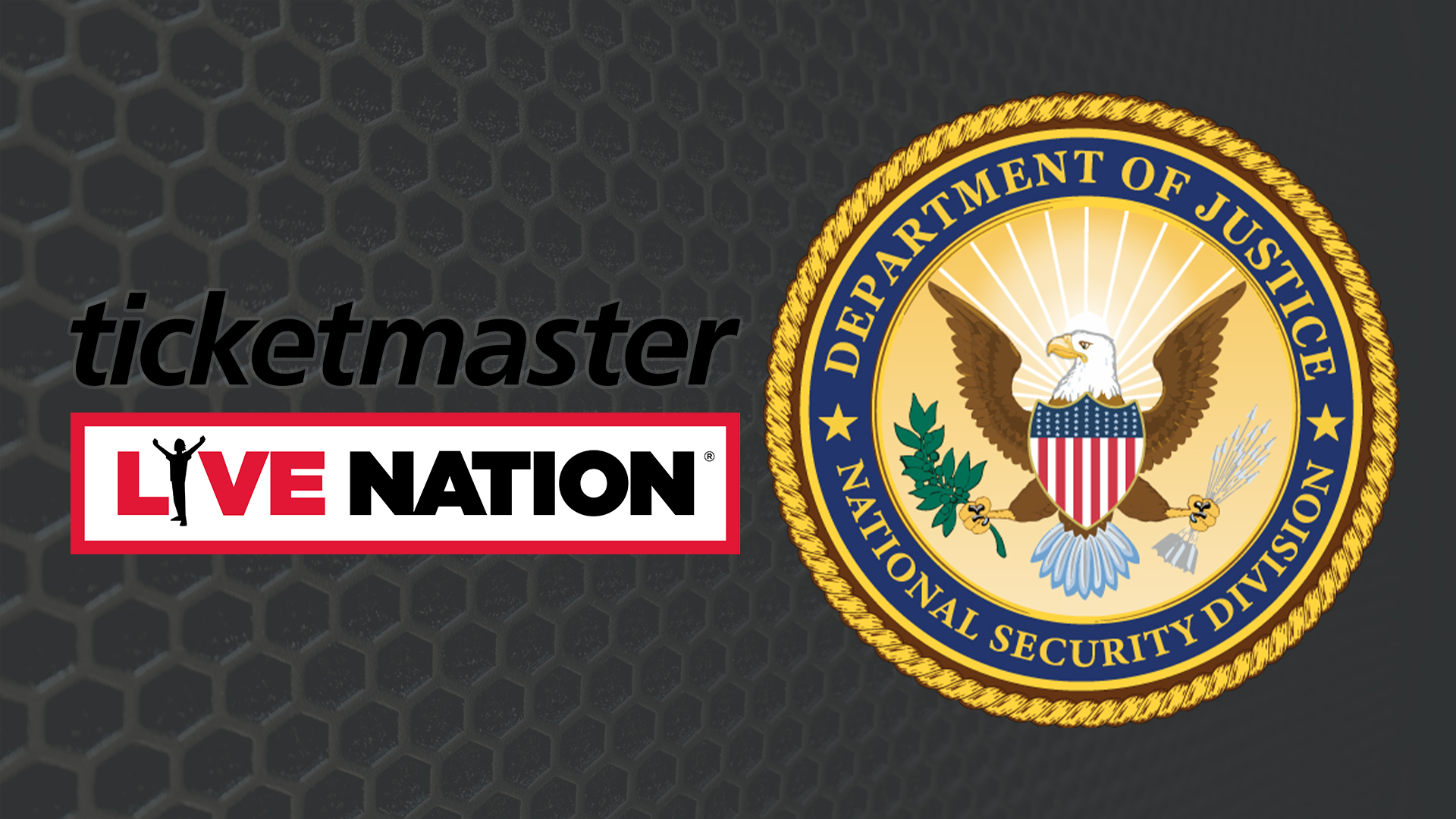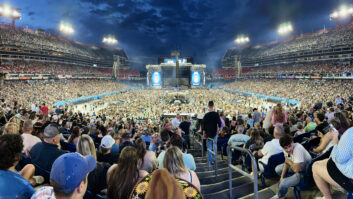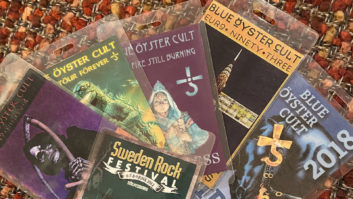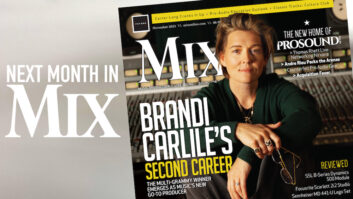
New York, NY (May 23, 2024)—Big news hit the concert industry today when the United States Justice Department filed an antitrust lawsuit against Ticketmaster and its parent company, Live Nation. The suit alleges that the behemoth entertainment conglomerate is operating a monopoly over ticket sales for live events in the U.S., the result of which destroys competition and drives up ticket prices for fans.
The lawsuit was filed in the Southern District of New York federal court, with 29 state and district attorneys general seeking to break up the apparently iron-fisted control Live Nation holds over live event ticketing.
The suit alleges a variety of illegal practices, such as implementing long-term contracts with venues that prevent them from using rival ticket vendors; preventing venues from using multiple ticket vendors; acquiring startups the company viewed as threatening competition; withholding acts from venues that don’t agree to use Ticketmaster for ticket sales; and that Ticketmaster has become the default ticketing service for many artists because Live Nation controls a large number of venues where the artists would like to play. I have, indeed, heard first-hand more than a few venue managers voice their fear that they’d lose Live Nation concerts if they don’t use Ticketmaster. Yikes.

Live Nation merged with Ticketmaster back in 2010. At that time, the Justice Department permitted the merger under the condition that Live Nation would not retaliate against concert venues for using other ticketing companies for a period of 10 years, but a 2019 investigation found that Live Nation had been violating the agreement. As a result, the Justice Department extended the ban on retaliation until 2025. (I guess after the term ends, Live Nation can do whatever they want, antitrust be damned.)
Ticketmaster is the world’s largest ticketing service, selling an estimated 500 million tickets annually in more than 30 countries, and accounting for 70% of all tickets sold for major concert venues in the United States. Meanwhile, Live Nation controls hundreds of concert venues—so you can see why there might be concern regarding a monopoly.
Ticketmaster came under scrutiny in November 2022 when its website crashed while fans tried to purchase tickets for Taylor Swift’s Eras Tour, leaving customers logged out or in a frozen queue. Subsequent reports of scalpers having purchased large numbers of Eras Tour tickets and posting them for sale online via ticket resale sites at extremely high prices didn’t help produce any warm and fuzzy feelings between concertgoers and Ticketmaster.
Mix Live Blog: A Nail in the Coffin of MI Retail
Live Nation maintains that it offers fans, venues and artists better pricing and service than they could if the businesses were separated. In an article posted on the Live Nation website, “The Truth About Ticket Prices,” the company explains that ticket prices are actually set by artists (or sports teams)—and there’s a lot of truth in that. Most artists have a “guarantee” (their minimum fee for a show) that must be met or they generally won’t take the gig. That guarantee is typically paid from ticket sales (sponsored events and casino shows notwithstanding), but what many people don’t realize is that ticket sales also pay for the venue infrastructure, staff, insurance, catering, equipment rentals, etc.—expenses that can easily double the “nut” that a promoter needs to raise from ticket sales in order to justify the event, not to mention the fact that the promoter needs to earn a living.
The article also defends service and venue charges, against which fans have a legitimate gripe—not necessarily because of the amount of those fees, but the manner in which they are assessed, often turning what appears to be a $100 ticket in their cart into a $135 ticket at checkout.
The lawsuit against Live Nation follows on the heels of a recent letter addressed to Maria Cantwell and Ted Cruz (Chair and Ranking Member of the U.S. Senate Committee on Commerce, Science & Transportation, respectively), in which more than 250 artists, including Billie Eilish, Green Day and Cyndi Lauper, voiced their support for the Fans First Act, which would ban fake tickets, misleading marketing strategies and unclear pricing such as the “junk fees.”
Unlike the lawsuit filed today, the letter—dubbed “Fix The Tix”—is aimed at resellers who purchase tickets from a legitimate source and resell them for profit. These ticket resellers (some would say “scalpers”) use bots to bulk-purchase tickets, accounting for 40% of all online ticket purchases. Scalping is a serious issue for the entertainment industry because any revenue above the ticket’s face value plus fees goes directly to the secondary market, not to the primary ticket vendor or the artist. And that hurts everyone involved.
This is gonna be interesting!







